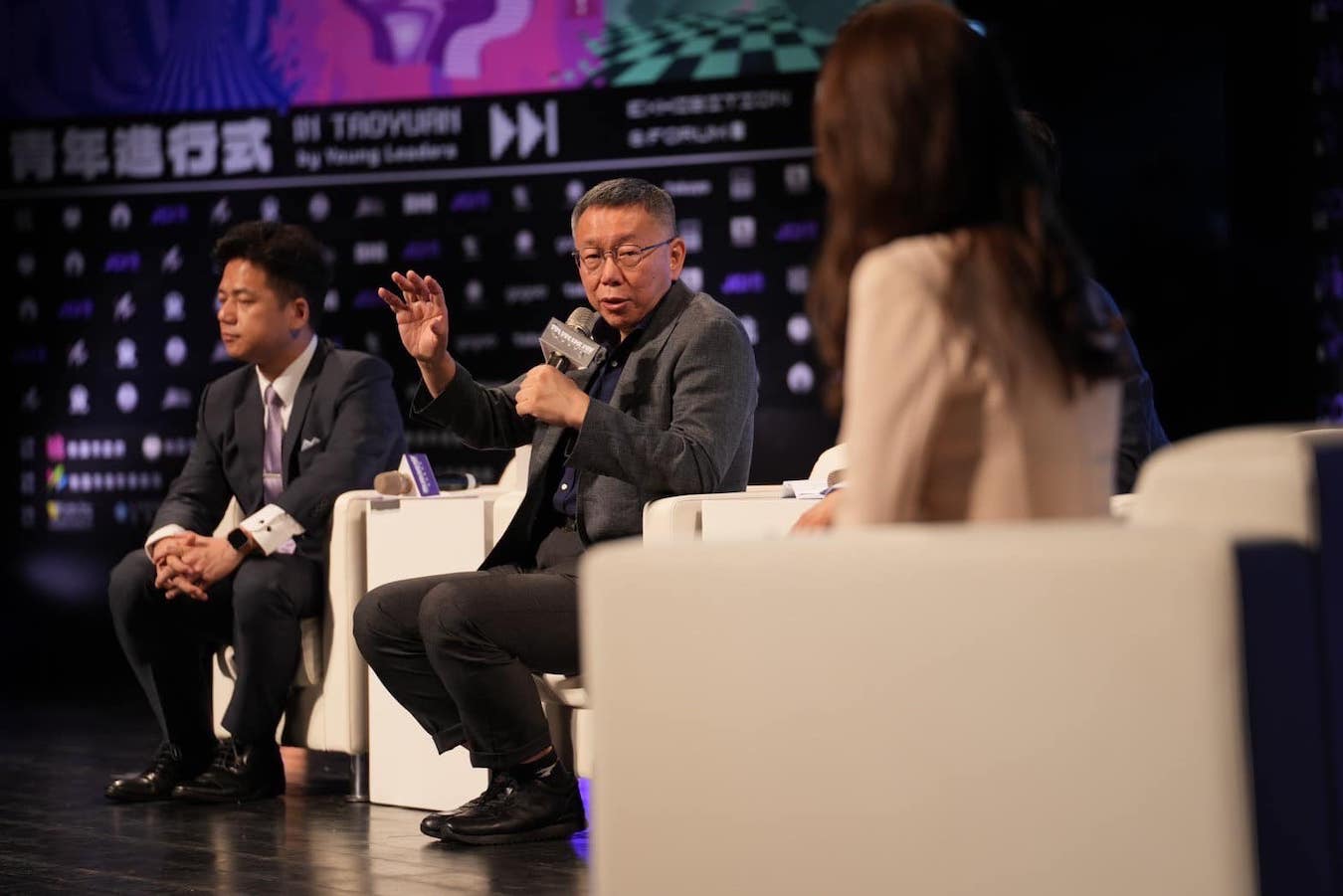by Brian Hioe
語言:
English
Photo Credit: Ko Wen-je/Facebook
KO WEN-JE’S TAIWAN PEOPLE’S PARTY (TPP) has again found itself embroiled in scandal, this time over a performance at a campaign event that involved dancers dressed as female flight attendants. The campaign event was for Chang Chi-hao, a TPP legislative candidate running in the Daan-Wenshan area in Taipei.
In particular, Chang is a former China Airlines pilot, hence the theme of the dance performance, which was framed as a “flight attendant support group,” and actually at an event for female supporters of Ko. Chang has played up his past career as a pilot in campaigning. However, the dance was clearly sexualized.
Consequently, the Taoyuan Flight Attendants’ Union (TFAU) issued a statement criticizing Ko and Chang for objectifying and sexualizing female flight attendants. The TFAU is currently in the midst of a campaign calling for phasing out the requirement in airlines that female flight attendants wear stockings, high heels, and pencil skirts. The TFAU has emphasized that this violates laws regarding gender equality and that other countries, such as South Korea, have long phased out this requirement in airlines.
Facebook post by the Taoyuan Flight Attendants’ Union on the incident
Afterward, the TPP has sought to defend itself. In the wake of the controversy, a TPP spokesperson stated that the intent of the dance was not to be sexual and asked if the party would have been criticized as discriminating against Japanese or Koreans if the dance had taken place in kimono on Hanbok. Of course, what the TPP seems not to have noticed is how similar actions have led to accusations of cultural appropriation, particularly in western contexts.
This latest controversy takes place after the TPP came under fire for using the slogan “Vote white, vote right” on its website, as well as using the term “White Power” to refer to the party in the past. The TPP was criticized for not being aware that this sounds like an expression of support for white supremacy.
Although the TPP later apologized for this, TPP legislator Lai Hsianglin was scoffed at for tagging former US president Donald Trump on Facebook and trying to get Trump to deny that this sounds like a white supremacist slogan. This was in response to claims that not even Trump would use the term “vote white”.
Shortly thereafter, Ko became embroiled in controversy for visiting southern Taiwan and referring to the people of southern Taiwan as “being so poor.” As this was seen as highly condescending to those living outside of Taipei, this is not likely to win Ko any votes there.
A major contributing factor to Ko’s popularity as a politician is his tendency to venture off script, making statements that can be controversial, but which contribute to the view of him as something other than a slick, polished politician. In this way, Ko is relatable to his supporters. As such, Ko has sometimes been labeled as a populist or semi-populist politician.
Indeed, Ko’s personality seems to be central to the TPP. Recent TPP fundraising events are illustrative of this, in that a concert in which tickets were sold at 8,800 NT per ticket involved Ko singing. A party auction to raise funds involved Ko auctioning off personal items, such as a bicycle helmet or belt. This may prove to be a challenge for the TPP in the present election cycle, since it is fielding a number of local candidates, who will have to appeal to local constituents and their interests rather than relying entirely on Ko’s popularity.
 TPP presidential candidate and former Taipei mayor Ko Wen-je (center). Photo credit: Ko Wen-je/Facebook
TPP presidential candidate and former Taipei mayor Ko Wen-je (center). Photo credit: Ko Wen-je/Facebook
Ko has been criticized in the past for misogynistic statements. This includes bodyshaming comments calling former democracy movement activist and Kaohsiung mayor Chen Chu as a “fat sow,” denigrating denigrating gynecologists as “mak[ing] a living between women’s legs” and claiming that women were “scary” when not wearing make-up.
However, it is possible that recent gaffes may not dissuade Ko supporters. Again, this will contribute to the image of him as unorthodox but relatable. This also may put Ko in a position to mop up support from those that believe political correctness has taken over Taiwan, with the DPP having sought to attract support from progressive youth.
A rally for housing justice and judicial reform on July 16th organized by streamer Holger Chen and former NPP chair Huang Kuo-chang attracted significant attention because of its heavily male composition. This could perhaps be a case in point, in that the rally became a de facto Ko campaign event–even if all pan-Blue candidates were invited and present, Hou You-yi of the KMT was booed at the event, while Ko was loudly cheered and was clearly the main act for the rally. That is, there may be a part of the population at large that welcomes politically incorrect statements from Ko and members of his party, and controversy involving these recent gaffes could cause them to double down on support from him more than ever. This may be a form of backlash against a generation of post-Sunflower “awakened/woke youth” (覺醒青年) that mostly entered the DPP or NPP, from other young people or other segments of the population.

